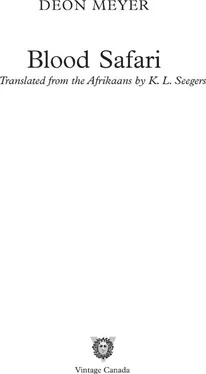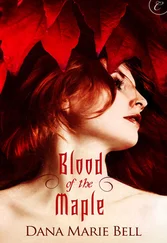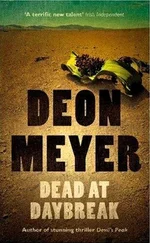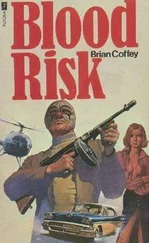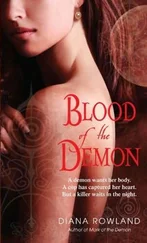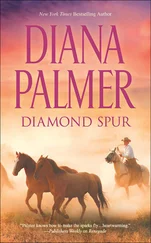Deon Meyer - Blood Safari
Здесь есть возможность читать онлайн «Deon Meyer - Blood Safari» весь текст электронной книги совершенно бесплатно (целиком полную версию без сокращений). В некоторых случаях можно слушать аудио, скачать через торрент в формате fb2 и присутствует краткое содержание. Жанр: Старинная литература, на английском языке. Описание произведения, (предисловие) а так же отзывы посетителей доступны на портале библиотеки ЛибКат.
- Название:Blood Safari
- Автор:
- Жанр:
- Год:неизвестен
- ISBN:нет данных
- Рейтинг книги:4 / 5. Голосов: 1
-
Избранное:Добавить в избранное
- Отзывы:
-
Ваша оценка:
- 80
- 1
- 2
- 3
- 4
- 5
Blood Safari: краткое содержание, описание и аннотация
Предлагаем к чтению аннотацию, описание, краткое содержание или предисловие (зависит от того, что написал сам автор книги «Blood Safari»). Если вы не нашли необходимую информацию о книге — напишите в комментариях, мы постараемся отыскать её.
In Blood Safari
A complicated man with a dishonorable past, Lemmer just wants to do his job and avoid getting personally involved. But as he and Emma search for answers from the rural police, they encounter racial and political tensions, greed, corruption, and violence unlike anything they have ever known.
Blood Safari — читать онлайн бесплатно полную книгу (весь текст) целиком
Ниже представлен текст книги, разбитый по страницам. Система сохранения места последней прочитанной страницы, позволяет с удобством читать онлайн бесплатно книгу «Blood Safari», без необходимости каждый раз заново искать на чём Вы остановились. Поставьте закладку, и сможете в любой момент перейти на страницу, на которой закончили чтение.
Интервал:
Закладка:
Emma took the photo without a word. She couldn’t hide her disappointment. The day had begun to take its toll.
‘I’m sorry,’ said Moller sincerely.
‘It’s OK,’ said Emma. She didn’t mean it.
So we stood in silence in the gloom of the shed. The zinc roof creaked in the heat. Moller’s eyes blinked as he looked from me to Emma, and back to me.
Rather reluctantly, she asked: ‘Mr Moller, how long did he work for you?’
‘Just Stef, my dear.’ He hesitated as if it were a weighty decision. ‘Perhaps we should have something to drink up there.’ He pointed a dirty fingernail towards the house.
We went out and I couldn’t rid myself of the feeling that I had seen something vital.
The homestead was without character, a white house, bleached corrugated-iron roof, built in the unimaginative seventies, perhaps, and fixed up a bit later. We sat on a veranda made of paved cement blocks. I satisfied my hunger from a big bowl of biltong and drank three glasses of Coke. Moller apologised for bringing the refreshments himself on a tray. ‘There’s only Septimus and myself, no other labour. I’m afraid there’s only Coke, will that do?’
‘Of course,’ Emma replied.
He related his story for Emma. I could see that he liked her in a shy, apologetic way.
He said that he remembered Cobie de Villiers well. ‘He turned up here in ninety-four, March, I think, in a beat-up old Nissan 1400 pick-up.’ He spoke in a measured, unhurried way, like a man dictating to a dim secretary. ‘In those days I didn’t lock the gate. He came knocking on the door.’
When Moller answered the door, he found a young man standing with his baseball cap in his hand who said, ‘Oom, I hear you are making a game reserve,’ using the unique Afrikaans term of respect for elders.
Moller said that was so.
‘Then I would really like to work for you.’
‘There are lots of game farms with jobs for game rangers …’
‘They want guides to take the tourists around, oom. I don’t want to do that. I want to work with the animals. That is the only thing I can do. I heard you don’t go in for tourists.’
There was something about Cobus, a simple determination, and a strong conviction, which appealed to Moller. He invited him in, and asked for references.
‘Sorry, oom, I don’t have any. But I have two hands that can do anything and you can ask me anything about conservation. Anything.’
So Moller asked him whether it would be a good thing to plant ilala palms on the reserve.
‘No, oom.’
‘Why not? They are good food. For the fruit bats. And the monkeys and elephants and baboons like the nuts too …’
‘That’s true, oom, but it’s a Lowveld tree. It’s a bit too high above sea level here.’
‘And tamboti?’
‘Tamboti is good, oom. This is its area. Plant them near the rivers, they like water.’
‘Are they good for the game?’
‘Yes, oom. Guinea fowl and francolin eat the fruits and the kudu and nyala like the leaves that drop off.’
He put him to the final test. ‘Tamboti makes good firewood.’
‘Just don’t barbecue on it, oom. The poison makes people sick.’
He had heard enough. That night Cobie de Villiers moved into a renovated labourer’s cottage and for three years worked harder than Stef Moller had ever seen anyone work before – from dawn till late at night, seven days a week.
‘He knew just about everything about nature. I learnt from him. A lot’
‘Did he ever talk about his past? Where did he get all that knowledge?’
‘Ah, my dear …’ Stef Moller took off his glasses and began to polish them on his dirty T-shirt. His faded blue eyes seemed vulnerable without the protection of the thick lenses. ‘People.’ He put the glasses back on. ‘They come here, but they’re not interested in how we healed the veld. They ask other questions. Where did I come from? How did I make my money? I don’t like that. You shouldn’t judge a man by how many mistakes he’s made in his life, you should judge him by how much he’s learned from those mistakes.’ He stopped, as if he had answered her question.
Emma took it to mean that he had not. ‘Why did he leave?’
Moller blinked rapidly. ‘I don’t know …’ He shrugged. ‘He didn’t say. He asked for two weeks’ leave. And then he left. He didn’t even take all his things. Maybe …’ He looked away into the distance, where the sun hung low over the green hill.
‘Maybe what?’ Emma prompted him.
‘The girl,’ Moller said quietly. ‘It might have had something to do with the girl. The last few weeks before he left…’ His thoughts drifted off, then he pulled himself back. ‘That’s when he came to ask for leave. The first time in three years. I thought he wanted to take her somewhere, but then she came looking for him a while later. We didn’t see him again …’
‘Where did he go?’
‘He didn’t tell me. He didn’t tell anyone.’
‘When was this?’
He didn’t hesitate. ‘Ninety-seven. August.’
Emma sat still, as if the information was enlightening. Then she opened her handbag and took out a pen and a sheet of paper. It was the web page printout of the Mohlolobe Private Game Reserve. She turned it over on the table and wrote something on the back. She looked up at Moller again.
‘I would like to talk to the girl.’
‘She worked at the resort.’
‘What was her name?’
‘Melanie,’ he said, the Afrikaans pronunciation, with a long ‘a’. With just a hint of disapproval in his voice. ‘Melanie Lottering.’
Emma wrote that down too.
Moller blinked and said with admiration, ‘You really believe that he’s your brother.’
Her voice was barely audible as she answered. ‘Yes.’
* * *
Emma picked up her bag and was ready to leave, but she hesitated and said very carefully: ‘Would you mind if I asked you one question about the reserve?’
He nodded. ‘You want to know why. You want to know what the point is if there are no tourism facilities.’
‘Oh dear, is that what everyone asks?’
‘Not everyone. Some. But I understand. It must be difficult to grasp when someone behaves differently. People expect you to spend money in order to make more. You develop a game reserve so other people will pay to see it. If you don’t do that people wonder what you’re hiding. It’s only natural.’
‘I didn’t mean it like that.’
‘I know you didn’t. But most people think like that. That’s one of the reasons I lock the gate at the entrance. They used to come in here and ask questions. Mostly, they didn’t understand my answers and went off shaking their heads. Or maybe they did understand, but didn’t like the answers. They wanted the right to see, to enjoy, to drive around in the reserve and show the animals to their children.’
Moller looked in the direction of the gate and said, with nostalgia, ‘Cobie understood.’ Then his gaze returned to Emma. ‘But let me explain to you, and you can make up your own mind.’
Blinking, he organised his thoughts. ‘Up till ten thousand years ago, we were hunter-gatherers. All of us. On every continent and island. We moved around in small groups in the search for food and water, depending on the availability. We were part of the balance of nature. We lived in harmony with the ecology, in the same rhythms. For a hundred thousand years. The principle of “make hay while the sun shines” was in our genes. When there was abundance, we enjoyed it, because we knew that the hungry years would come. That’s nothing unique, all animals are like that. Then we discovered how to domesticate cattle and goats and we learned to sow grass seed and after that everything changed. When we stopped moving on, we made villages. We multiplied and we sowed and our cattle and sheep and pigs grazed in one area. We lost the rhythms of nature. Are you following me so far?’
Читать дальшеИнтервал:
Закладка:
Похожие книги на «Blood Safari»
Представляем Вашему вниманию похожие книги на «Blood Safari» списком для выбора. Мы отобрали схожую по названию и смыслу литературу в надежде предоставить читателям больше вариантов отыскать новые, интересные, ещё непрочитанные произведения.
Обсуждение, отзывы о книге «Blood Safari» и просто собственные мнения читателей. Оставьте ваши комментарии, напишите, что Вы думаете о произведении, его смысле или главных героях. Укажите что конкретно понравилось, а что нет, и почему Вы так считаете.
